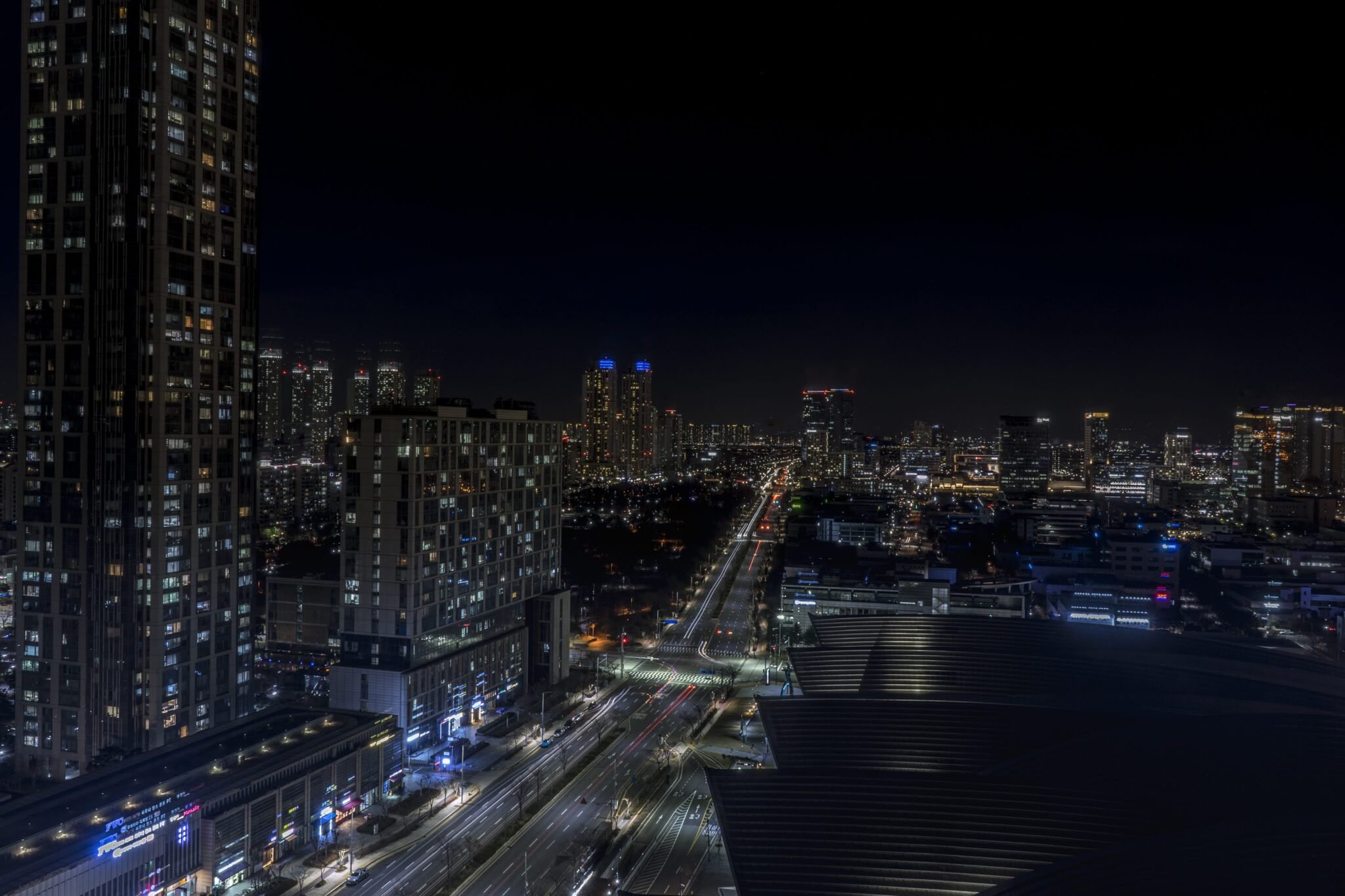Stuck Inside
37°23’25.0″N 126°38’42.1″E
1120 ZULU
The double-paned window is cold to the touch and the back of my hand leaves behind a smudge of condensation when I pull it away from the glass. I watch the moisture fade, evaporating into the relatively warmer air of my hotel room, as finally, I begin to feel the stress of the last few hours of flying lift from my shoulders. I spin the padded office chair I’m sitting in around to face the room, and then stand up and roll my shoulders several times. The spot that has been bothering me behind my right shoulder blade pops, the noise jarringly loud in the empty space, and I grunt with satisfaction.
The room is surprisingly large for hotel rooms in Asia, although upon further contemplation, my experience is rather limited, beyond my stays in Japan. The design is decidedly modern, with dark accents setting off the typical whites and beiges of hotel rooms everywhere. The bed looks suitably fluffy, and the chair, which I’ve already adjusted to my liking while looking out the window, is both functional and comfortable. There are still areas to explore—namely the bathroom and the closet that hopefully will have an iron in it—but for now I pronounce myself satisfied with my home for the next 23 hours.
And satisfied I’d better be. Due to the current state of the COVID pandemic, Korean authorities have requested that all flight crews overnighting in the country remain confined to their hotels. This is slightly better than being confined to the hotel room—something friends of mine operating cargo flights to various other countries have been recently faced with—but still frustrating. An entirely new (to me) country is just outside the door, and I can’t even set foot into it.
I turn off the room lights using a touch screen display on the bedside table, and in the sudden darkness shuffle my way back to the window, managing to avoid tripping over the multiple obstacles scattered in my path. The chair is where I just left it, and as my eyes adjust to the dim glow of city lights casting illumination through the window, I pull it up to the floor to ceiling wall of glass and sit back down.
I lean forward and press my forehead against the cold pane, staring hard. Outside the window, refracted slightly by the imperfections in the glass, the urban street stretches away into the night. This isn’t the road we arrived on, as my room faces a different direction, but in my mind, I retrace our journey to the hotel, starting back at the plane, through the terminal—empty except for our crew and the few passengers we brought in—past a Tyvek-suited and masked temperature checker, and out through immigration and customs.
The arrivals lobby of the terminal, normally a mass of welcoming humanity, was quiet, with just a few people waiting patiently on the other side of a metal barricade who in a strange process would point to and “claim” their arriving family members as they appeared. Seeing that, another Tyvek-suited official would cull the correct passengers from the herd milling around inside the barricaded area and direct them through a gate where the family member was waiting to escort them directly to a 14-day quarantine. With nobody waiting for us, and an exemption in hand, we passed through the gate, and then by another Tyvek-suited team who pointed us towards our waiting bus transport to the hotel.
My room faces east and inland, in the opposite direction as the sea and airport. In 10 hours’ time the sun will be breaking the horizon directly in my line of sight but for now, the sky is black. Nineteen stories below me on the street, a few cars pass by, their headlights and taillights leaving trails in the darkness. Despite the still early hour of the night, there is nobody walking around and all the shops that I can see lining the street look closed. Not for the first time, the sheer magnitude of the pandemic hits me. I lean back slightly from the window and exhale. The window fogs from my breath and the outside world fades away.

